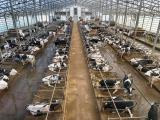May 15, 2007 (CIDRAP News) – Indonesia's health minister announced today at the World Health Organization's (WHO's) annual meeting that the country has resumed sending H5N1 avian influenza virus samples to the WHO, appearing to end a 5-month standoff over developing countries' access to vaccines.
"I am pleased to announce to all of you that Indonesia has resumed sending its H5N1 specimens to the WHO collaborating center in Tokyo," Siti Fadilah Supari said at the World Health Assembly in Geneva, according to a Reuters report.
Dick Thompson, a WHO spokesman in Geneva, confirmed today that Indonesia recently began sending samples to the WHO collaborating center in Tokyo, according to a Bloomberg news report. However, the director of the Indonesian laboratory that has been storing the samples told Bloomberg he couldn't confirm the report.
Flu virus samples are used to track the viruses' evolution, spread, and drug resistance and to develop vaccines.
Indonesia stopped sending its H5N1 samples to the WHO in December and in February announced it would send no more until it received assurances that the strains would not be used by private companies to make vaccines that the country couldn't afford.
After a meeting between the WHO and Asian health officials in March, Supari said Indonesia would resume supplying the virus specimens immediately, in return for a WHO promise to revise its sample-sharing rules. But the country had continued to withhold the samples, saying it wanted a written guarantee that they wouldn't be shared with drug companies without the country's consent. It was unclear today whether Indonesia received a written assurance from the WHO.
Supari took the opportunity today to reiterate Indonesia's view that developing countries are at a disadvantage for access to pandemic vaccines, Reuters reported. "Sequences had been used for some parties for instance through research presentation, publication, commercialization, and requests for patents without our consent. Such practice violates the spirit in which the virus is given," she told the assembly, according to Reuters.
Supari's announcement came as 17 developing countries introduced a resolution at the World Health Assembly demanding equitable access to vaccines made from H5N1 samples the countries provide, according to another Reuters report.
Reuters reported that the resolution:
• Calls for transparent and equitable sharing of benefits arising from information and virus samples provided by countries
• Calls for affordable and timely access to vaccines, diagnostics, antiviral agents, or other medical supplies that evolve from use of the virus samples, and
• Requires researchers and vaccine developers to seek informed consent from countries that contribute the viruses before using them
The WHO is expected to develop a new formula for sample sharing by the end of June, the Reuters report said.
WHO Director-General Dr. Margaret Chan, in a keynote speech at theWHO meeting today, spoke of working to ensure that developing countries have access to pandemic flu vaccines. Her speech was postponed from yesterday.
"I am personally engaged in several efforts to ensure access to vaccines in all countries," Chan said, according to the WHO text of the speech.
"The first agreements to transfer technology to vaccine manufacturers in developing countries have been signed," she continued. "We have initiated work on establishing a stockpile of H5N1 vaccine. Advance procurement mechanisms for pandemic vaccine are under development.
"I am in dialogue with development partners and with executives from all the leading influenza vaccine companies. I am greatly encouraged by their commitment."
The World Health Assembly began yesterday and ends on May 23.
See also:
WHO transcript of Chan speech
http://www.who.int/dg/speeches/2007/150507/en/index.html
More information on the WHO annual meeting
http://www.who.int/mediacentre/events/2007/wha60/en/index.html
















